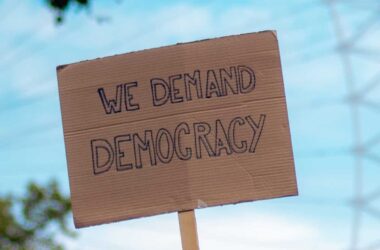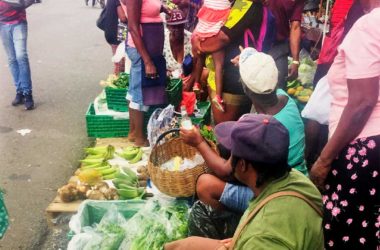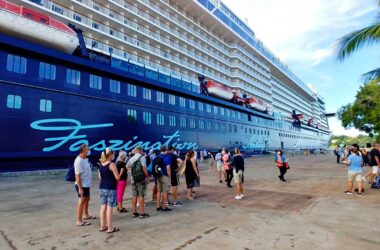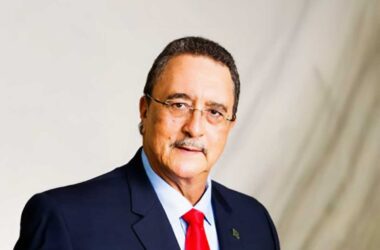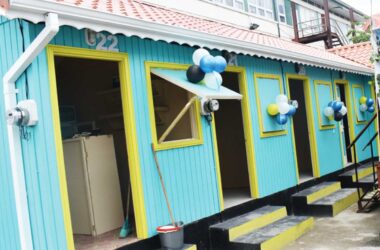
As the world observes Africa Day 2024 this weekend to celebrate the changes and challenges since the African Union (AU) replaced the Organization of African Unity (OAU), it’s okay to ask: Whither Africa today?
And with Kenya’s prescribed role in Haiti, it’s also alright to ask: What’ become of African and Caribbean Community (CARICOM) ties in the age of addressing the ongoing challenges and opportunities facing Africans and People of African Descent?
We look at Haiti 220 years after its 1804 independence proclamation and we see the US more openly unfolding its plan to use Africans and other People of African Descent to fight African descendants in Haiti.
Washington is spending hundreds of millions of US dollars to send at least 2,000 armed Kenyan and Caribbean police officers and soldiers to Haiti to fight the unified armed paramilitary groups of the G-9 Alliance led by Jimmy Cherizier.
The Western press concentrates on describing Cherizier by his childhood name ‘Barbecue’ (when he helped his mother sell fried chicken) and calling the over-100 united well-armed community-based paramilitary units ‘gangs’, even after they took-over the capital and forced Prime Minister Ariel Henry to resign – and stay out of Haiti.
CARICOM states interested in getting a big slice of the American Pie are lining-up behind the US-funded and UN-backed plan to use Black-on-Black violence to keep their political and economic strangleholds on Haiti.
The paramilitary forces are gaining support in communities they protect, defend and assist, many beleaguered and displaced citizens are also nonetheless against external intervention, of any and all kinds — and the units have sincerely promised they will take the fight to any foreign force, whether from Africa or the Caribbean.
The rich nations financing the accelerating external intervention want Haiti’s wealth, but they don’t want to sacrifice the health or lives their own soldiers, so they refer to send and pay armed police and soldiers looking like Haitians.
The armed units and collective opposing and promising to fight external intervention in Haiti are being called ‘gangs’, ‘rapists’ and ‘terrorists’, but that’s Standard-Operating-Procedure for America and the world’s richest nations: they called Mandela and the Southern African freedom fighters, Yasser Arafat and the Palestinian Liberation Organization (PLO) and Haitian President Fr Jean-Bertrand Aristide ‘terrorists’, ‘communists’ and/or simply unreliable.
They protected the Haitian dictator Francois ‘Papa Doc’ Duvalier and gave his son Jean-Claude ‘Baby Doc’ safe passage after Haitians rose against the family’s despotic dynastic rule in the 1980s, but kidnapped Aristide and twice engineered his removal from elected office thereafter.
Thanks to their long and bitter experiences, Haitians generally oppose outside solutions being imposed by the likes of the United Nations (UN), the USA, France, Canada and others.
The Americans facilitated the reopening of Haiti’s main airport earlier this week, mainly to allow prior units of the external armed forces trained in neighboring Jamaica to land, while American contractors are busily building barracks for the uninvited US-backed and UN-blessed armed ‘security’ force.
The US, France, Canada and other nations have been evacuating nationals from Haiti in preparation for deployment of the ethnically-engineered look-alike rapid deployment force.
Kenya’s President William Ruto is accused by the opposition at home of always eagerly going overboard to please Washington and of also being very-accessible-to by the US Ambassador, a former top Hewlett-Packard executive.
The Kenyan High Court delayed the dispatch of the intervention force in the absence of a binding agreement with Haiti, while the un-elected transitional council, crafted externally and installed in Port-au-Prince, was is in over-drive trying to get the armed external force to land, even before agreeing on who among them should be interim prime minister.
An unmistakably marionette transitional administration has been put in charge for two years, to take Haiti to national elections, completely halting or brushing-aside CARICOM’s own approach of engaging with Haitian stakeholders to ensure the next elections are truly free and fair, transparent and accountable.
President Ruto, dubbed ‘the flying president’ back home, faced criticism at home and abroad for renting a private Boeing jet from the Middle East for over-US $1.5 million, to fly to Washington to meet President Biden at the White House, to discuss America’s ultimate plan for a Haiti under Kenya-led occupation.
France and the US extracted 190 million gold francs from Haiti (scores of billions of US dollars today) as payments through reparations for France to recognize its independence.
American troops invaded Haiti (first in 1915) and neighboring Dominican Republic, many times after.
Today, the US, France and Canada are turning to Africa and the Caribbean to help keep the majority of Haitians at home dirt-poor while they seek to extract rich natural resources from its soil.
Caribbean neighbors that didn’t fight for their independence are being recruited to help the usual suspects and culprit Western nations to prevent Haiti from exercising its 220 years of independence in a sovereign manner today.
Kenya’s first President, Jomo Kenyatta, must be turning in his grave, to see Jamaica and other Caribbean nations joining Kenyans to help implement a 21st century neocolonial agenda in Haiti.
The late Jamaica lawyer and Cabinet Minister Dudley Thompson, who successfully defended Jomo Kenyatta at his trial in Kenya and the UK, when the British hauled him before the courts for leading the fight for Kenya’s independence.
Jomo Kenyatta’s popular son, Uhuru, was twice-elected President, but unable run a third term and Ruto beat Kenyatta’s intended successor.
Kenyatta pulled Kenya closer to the AU after it replaced the OAU that Haile Selassie and other African leaders established at the UN in 1963, but in less than two years, Ruto is seen by many as having pulled Kenya further from Africa and closer to America, finally earning a state visit to the White House this week, to discuss Nairobi’s largest slice of Haiti’s American Pie.
May 25 used to be observed as African Liberation Day (ALD), but that spirit has been emasculated with lesser emphasis today on Africa Day.
The struggle for Unity and Progress by and for People of African Descent has been wounded by this undisguised effort to use Black-on-Black violence to pursue imperial and neocolonial interests in and between Africa and The Caribbean.
Barbados, Guyana. Jamaica, Trinidad & Tobago and Grenada, as members of the Non-Aligned Movement (NAM), joined Cuba and Nicaragua, to routinely oppose Apartheid at annual summits.
In the mid-70s, Barbados and Guyana legally helped fly arms and soldiers from Cuba to Angola.
Presidents Nelson Mandela of South Africa, Samora Machel of Mozambique, Agostino Neto of Angola and Sam Nujoma of Namibia, all (at different times) thanked the Caribbean for anti-Apartheid solidarity during their national liberation struggles in the 1970s and 1980s.
President Uhuru Kenyatta was a co-chair of the first African Union-CARICOM Summit in 2021; and he also visited Jamaica to offer thank Jamaicans and the late Dudley Thompson and successive Michael Manley administrations) for their support for Kenya’s independence fight.
Some AU member-states (including Kenya under Kenyatta and Ghana today), have embraced CARICOM’s call for Reparations for Slavery and Native Genocide; and India supports CARICOM and Africa’s Reparations claims, with eyes on also pursuing Reparations for Indentureship.
The UN has belatedly embraced the Reparations calls, while welcome efforts are also under way, with Caribbean leadership and African cooperation, for the UN to declare a Second Decade for People of African Descent.
But all this progress is being severely undermined by the rapid deployment of Kenyan and Caribbean forces to lead what some have described as “a Black-faced and Dark-skinned multinational armed brigade” posing as policemen assigned to keep Law and Order.
Sudan is facing the worst human displacement crisis in the world today, with tens of millions affected, while 35,000 Palestinians (including 15,000 children) have been killed in less-than eight months in Gaza alone — but there’s no talk of sending UN or multinational security forces to help end either war.
Yet, while there’s no such war in Haiti, the rich nations financing and arming Israel’s fight against Palestine and Hamas have baked a billion-dollar-sized, red-white-and-blue American Pie, with white stripes a huge Black Star in the middle – a star that certainly doesn’t represent Marcus Garvey’s or Ghana’s Back Star Line, or liners.
Those seeking biggest-possible slices of the American pie are happy to sing and dance accordingly to scripted music of repeated choruses about simply wanting to help helpless Haiti, to help its helpless itself.
But Haiti’s history and its long, rich experiences in the past 22 decades still leave many, the-world-over, ever-hopeful that 1804 will never be erased, nor will the wise words of Toussaint L’Ouverture, when he was tricked and captured by France: that instead of felling the tree, they had only chopped a few branches, that would grow again.
Many also strongly believe that time is closer than most think, which is why all is being done to ensure that ever-boiling revolutionary volcano never erupts again in Haiti.



